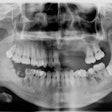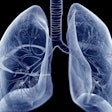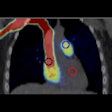
Does periodontal disease cause systemic disease? Yes, but ...
How's that for an answer that keeps you hanging? Let me explain.
 Alvin Danenberg, DDS.
Alvin Danenberg, DDS.Yes, in that once periodontal disease is established in the mouth, its pathological byproducts can seep into the bloodstream, lymph fluid, and bone structures to cause the spread of infection and inflammation to all areas of the body. In this way, periodontal disease can cause systemic disease.
But although periodontal disease is a focus of infection around the teeth, it has its origin in an area that is remote from the mouth. The gut is the seed to the manifestation of most systemic chronic diseases, which periodontal disease is just one of many.
An article was published in the Biomedical Journal (February 2019, Vol. 42:1, pp. 27-35) that described the correlation between periodontal disease and various chronic diseases. The authors concluded that epidemiological, clinical, and experimental studies supported the relationship between bacteremia or inflammation due to periodontal disease and systemic disease.
Causes and theories
I've written before that dental plaque is healthy until it's not healthy. Periodontal disease develops from unhealthy dental plaque. Unhealthy plaque results when healthy plaque is transformed because of an underlying compromised immune system and unhealthy food choices. The compromised immune system has its roots in unhealthy changes in the gut.
Once systemic disease spreads, a vicious cycle begins, as all tissues affect all other tissues in the body. Tissues use "cross talk" to communicate with other tissues, according to a study in Clinical & Experimental Allergy (February 19, 2016).
I believe that periodontal disease is just one of many chronic diseases that begin in the gut. Since the mouth is visible and easy to examine, it may be the first clinical area where the disease is diagnosed. But the ultimate starting point is in the gut before the disease becomes visible in other areas of the body.
Unhealthy changes in the gut microbiome are called gut dysbiosis. The gut microbiome, the intestinal mucus layer, and the epithelial lining of the gut become damaged from potentially many different influences. Detrimental lifestyle, toxic elements in the environment, and inflammatory foods are major contributors that can damage the gut and create gut dysbiosis.
Leakage from a damaged gut into the bloodstream and the lymph fluid can cause systemic chronic inflammation and a break down in the body's ability to fight infection. Both will affect all other tissues in the body.
Efficient treatment
In the mouth, a compromised immune system can allow the overgrowth of pathological bacteria. Unhealthy changes in dental plaque and unhealthy food choices will initiate periodontal disease. Then, periodontal disease, as a unique site of infection in the mouth, will begin to spread, causing additional systemic chronic inflammation and chronic diseases.
To treat periodontal disease and avoid chronic disease, active infection in the mouth must be treated efficiently. In addition, irritating and toxic substances must be removed from the mouth and teeth. However, gut dysbiosis must be treated simultaneously. Just treating either the damaged gut or active periodontal disease will be insufficient.
Alvin Danenberg, DDS, has retired from the private practice of periodontics in Bluffton, SC. He continues to be on the faculty of the College of Integrative Medicine and created its integrative periodontal teaching module. He also spent two years as chief of periodontics at Charleston Air Force Base earlier in his career. His website is drdanenberg.com.
The comments and observations expressed herein do not necessarily reflect the opinions of DrBicuspid.com, nor should they be construed as an endorsement or admonishment of any particular idea, vendor, or organization.


















